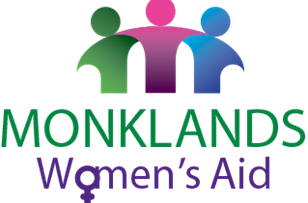What is Domestic Abuse
Domestic abuse is when someone wants to control and have power over someone else – and it can worsen over time. Sometimes, people find it hard to accept that they’re experiencing domestic abuse, and it can take a long time for a person to recognise what is happening. That’s because domestic abuse doesn’t just mean physical violence. It can also include:
- Physical abuse – slapping, punching, pushing.
- Mental abuse – controlling behaviour, threats, name calling, isolating you from your friends and family.
- Sexual abuse – being forced to have sex, feeling humiliated or degraded, rape.
- Financial abuse – withholding money, controlling your wages, forcing you to work.
- Coercive control - is a pattern of behaviour which seeks to take away the victim's liberty or freedom, to strip away their sense of self. It is not just women's bodily integrity which is violated but also their human rights. It is a range of acts designed to make a person subordinate and/or dependent by isolating them from sources of support, exploiting their resources and capacities for personal gain, depriving them of the means needed for independence, resistance and escape and regulating their everyday behaviour. Coercive behaviour is: an act or a pattern of acts of assault, threats, humiliation and intimidation or other abuse that is used to harm, punish, or frighten their victim.
Domestic abuse may include one or several of the above
No woman or child should be subjected to domestic abuse. If it is happening to you, please remember, it’s not your fault and we can help. If you can contact us safely, please get in touch with us: Monklands Women’s Aid 01236 432061 (24hrs – 7 days a week)
Monklands Women’s Aid subscribes to the Scottish Government’s definition of Domestic Abuse
- ‘Violence against women is a term used by the Scottish Government to define a range of actions which harm or cause suffering and indignity to women and children. They include but are not limited to:
- Physical, sexual and psychological violence occurring in the family, within the general community or in institutions, including: domestic abuse, rape, incest and child sexual abuse;
- Sexual harassment and intimidation at work and in the public sphere; commercial sexual exploitation including prostitution, pornography and trafficking;
- Dowry related violence;
- Forced and child marriages; Honour crimes’
Who is affected?
Anyone can be affected by domestic abuse, regardless of age, class, race or religion. There is no typical abuser – and no typical victim.
What are the effects?
The effects of domestic abuse are subjective, far-reaching and can last many years. Physical pain is just the tip of the iceberg. Women may suffer from poor health, lose their homes or their jobs, and suffer from low esteem, depression and feelings of worthlessness.
Domestic abuse affects children and young people, too. They may be physically hurt if they try to protect you and traumatised by what they see and hear. Living in an abusive situation can cause children to have serious emotional problems and suffer long- term psychological damage. Research shows there is a link between domestic abuse and child abuse.
Monklands Women’s Aid subscribes to the Scottish Government’s definition of Domestic Abuse
Domestic violence can also take place in lesbian, gay, bi-sexual and transgender relationships, and can involve other family members, including children.
How do I Get Help?
If you need help, please call us on: 01236 432061

-
GET HELP?
We’re here to support you
» FIND OUT HOW WE CAN HELP
throughout your journey -
WHAT IS
» FIND OUT MORE
DOMESTIC
ABUSE? -
DONATE
Help support
» FIND OUT HOW YOU CAN MAKE A DIFFERENCE
Monklands Women’s Aid

 01236 432061
01236 432061